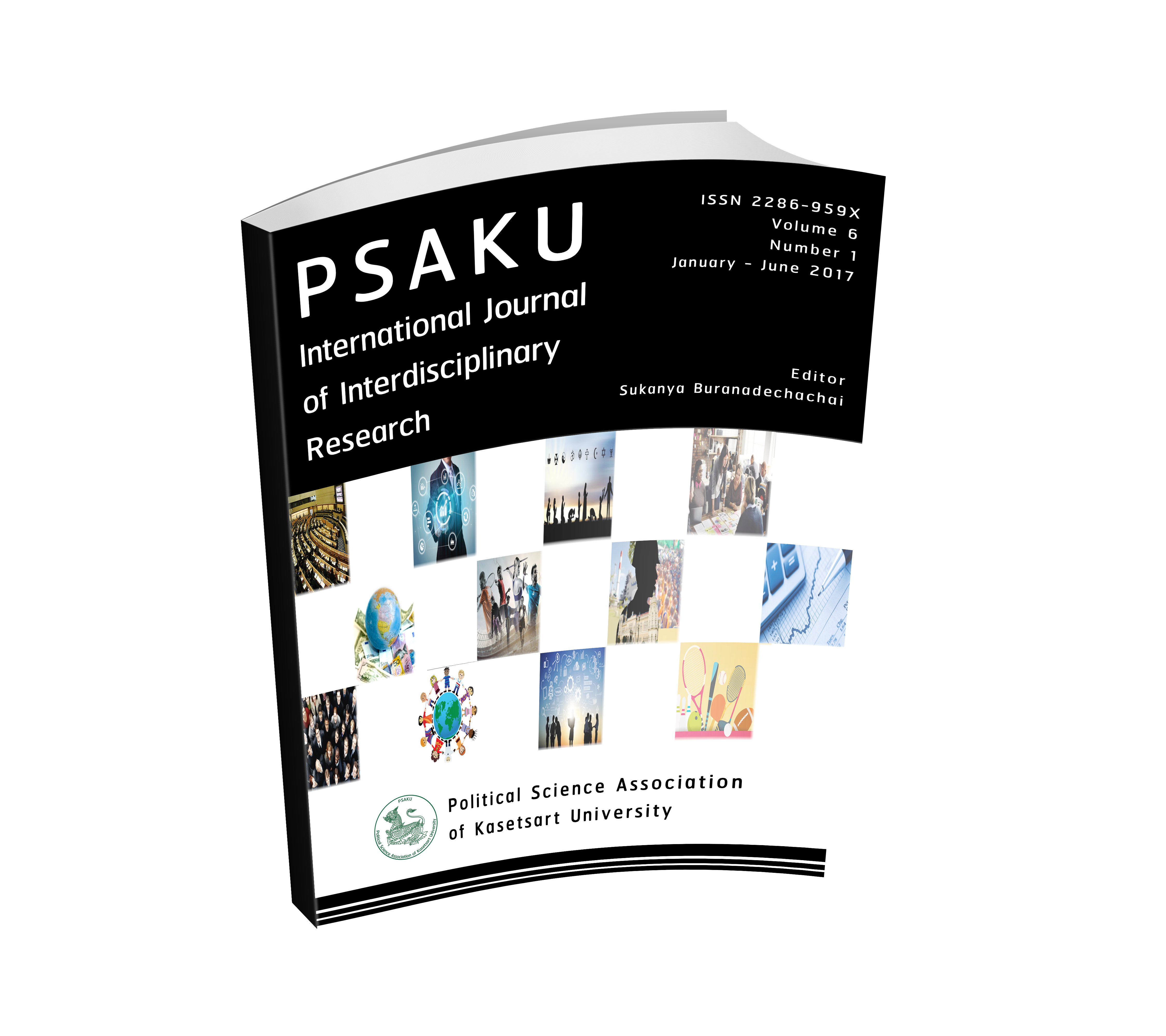Organizational Culture Affecting Effective Management of Social Enterprises in Organic Food Industry in Thailand
Keywords:
Organization Cultures, Community of Practice, Management Efficiency, Social Enterprises, Organic Food IndustryAbstract
This qualitative research is purposed to 1) explore aspects of organizational culture that contribute to effective management of social enterprises in Thailand’s organic food industry, and 2) examine management environment of social enterprises in the organic food industry. Data were collected from three groups of key informants, operators of social enterprises in the organic food industry, academics and experts in social enterprise, and stakeholders of social enterprises through observations and in-depth interviews with a semi-structured method covering research objectives, derived from a conceptual framework developed from relevant concepts and theories. Findings revealed that organizational culture, particularly the manner of community of practice, is crucial to social enterprises and their management effectiveness. A common characteristic that affects such effectiveness of social enterprises in Thai organic food industry is passing down organizational culture through participatory practices, namely, 1) training on Participatory Guarantee Systems, 2) Participatory Action Research, and 3) knowledge exchange programs for operators of social enterprises.
Downloads












.png)


